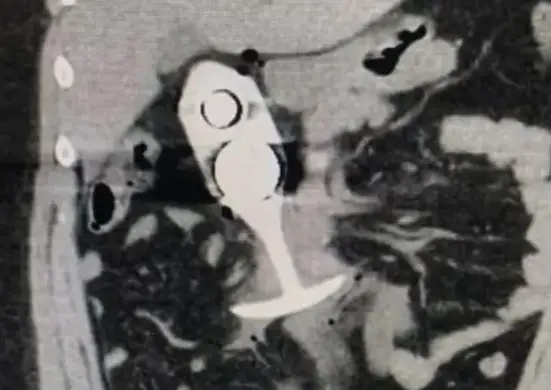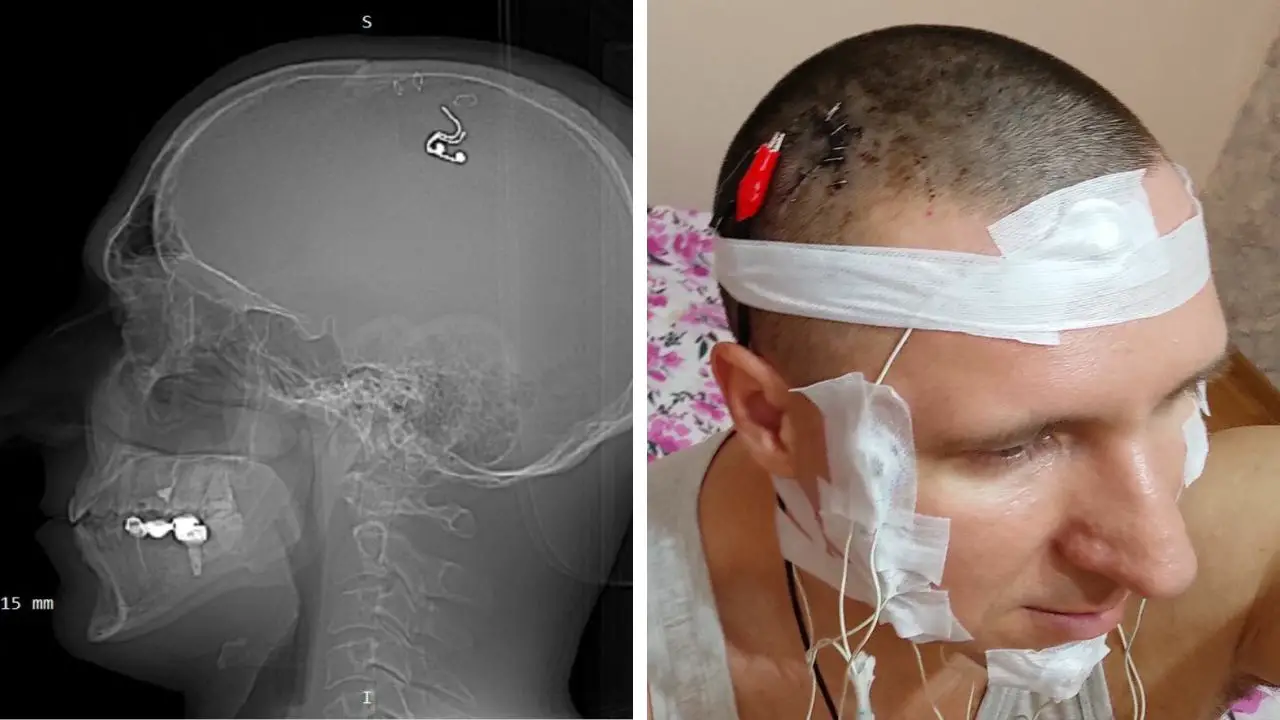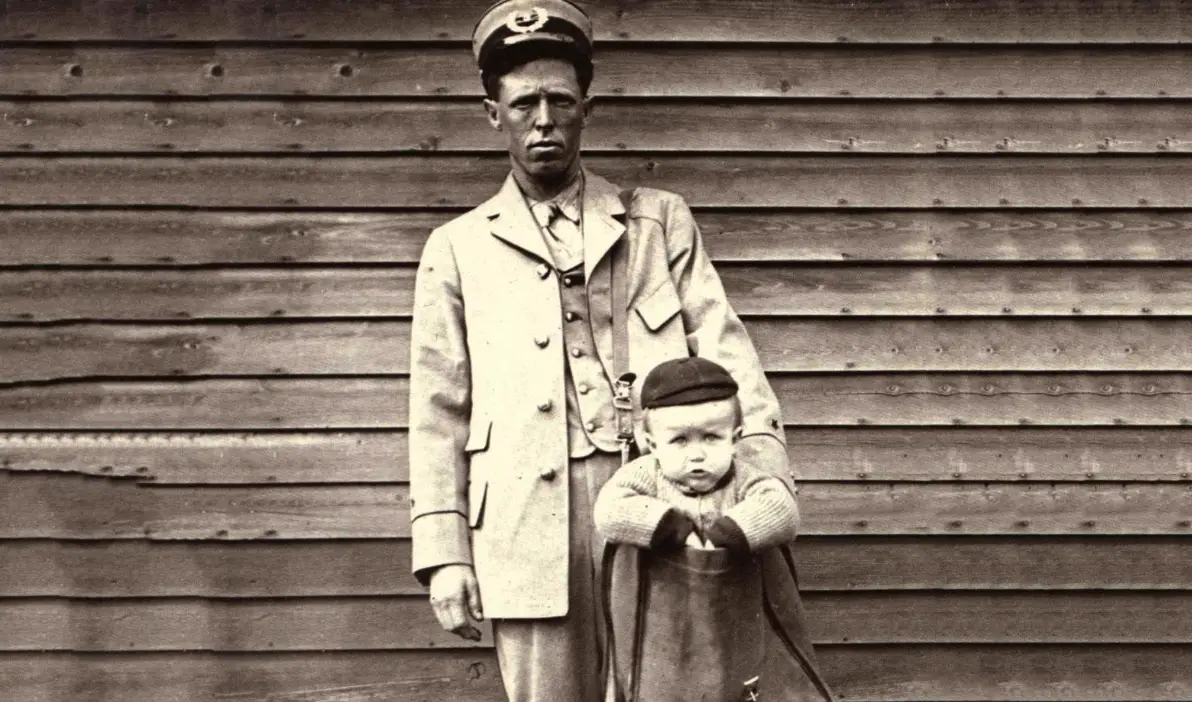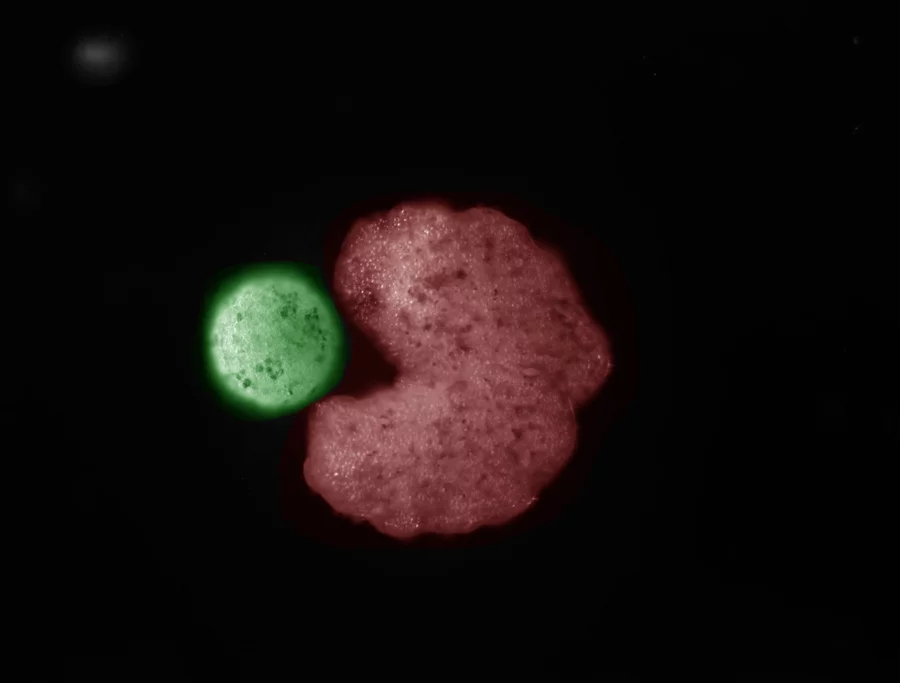Georgia man charged with murder for allegedly transmitting HIV to wife who died days after AIDS diagnosis

A Devastating Betrayal Unfolds in Conyers
In a case that has shocked the community of Conyers, Georgia, Cleveland Broadie, a 62-year-old man, faces murder charges for allegedly transmitting HIV to his wife, Denise Broadie, who died from AIDS in April 2022.
Prosecutors claim Cleveland knew he was HIV-positive since 2006 but failed to disclose this to Denise, whom he married in 2014.
The allegations paint a picture of deception that ended in tragedy, leaving a family shattered and a community grappling with the implications.
Denise Broadie’s Courageous Fight and Tragic End
Denise Broadie was no stranger to battling serious illness. Diagnosed with breast cancer in 2017, she achieved remission, only for the cancer to return in 2019.
After enduring chemotherapy and hospital stays, she again went into remission, but her health continued to decline.
Doctors, puzzled by her persistent symptoms, ordered extensive tests at a new hospital in March 2022.
The results were devastating: Denise had advanced AIDS. On April 2, 2022, just two days after her diagnosis, she passed away.
Her sudden death left her family reeling. Denise, a mother and cancer survivor, had no idea she was living with HIV, a condition that could have been managed with early treatment.
The revelation that her husband allegedly withheld his HIV status sparked outrage and set the stage for a high-profile legal battle.

Cleveland Broadie’s Alleged Deception
At the core of the case is Cleveland Broadie’s failure to disclose his HIV-positive status.
According to court documents and family statements, Cleveland was diagnosed with HIV in 2006, nearly a decade before he met Denise.
Despite this, he reportedly never informed her of his condition during their marriage, which began in 2014.
This omission allowed the virus to progress untreated in Denise, leading to the development of AIDS and her untimely death.
The allegations extend beyond Denise. Since the case gained public attention, at least two other women have come forward, claiming Cleveland engaged in sexual activity with them without disclosing his status.
These accusations have led to additional charges and raised concerns about the potential for more victims.
A Family’s Pursuit of Justice
Denise’s family, devastated by her death, refused to accept it as a mere tragedy. Suspecting Cleveland’s role, they hired a private investigator to dig into his past.
The investigator’s findings were pivotal: Cleveland had been diagnosed with HIV in 2006, a fact he allegedly concealed from Denise and others.
Armed with this evidence, the family pushed for stronger charges, transforming the case from reckless conduct to murder.
Denise’s daughter and other relatives have been vocal about their grief and anger.
“He acted with malice,” her daughter told FOX 5 Atlanta. “If he had just told her, she could have gotten treatment and lived.”
The family’s determination has kept the case in the spotlight, drawing attention to the broader issue of HIV disclosure.

Georgia’s Strict HIV Disclosure Laws
Georgia has some of the nation’s toughest laws regarding HIV disclosure.
Under state law, it is a felony for an HIV-positive individual to engage in sexual activity without informing their partner of their status, regardless of whether the virus is transmitted.
Violators face up to five years in prison per count of reckless conduct. Cleveland’s alleged actions violate this law, and his case has brought renewed focus to its enforcement.
The murder charges—malice murder and felony murder—represent a significant escalation.
Prosecutors argue that Cleveland’s failure to disclose his status directly led to Denise’s death, justifying the murder charges.
Cleveland has pleaded not guilty to the reckless conduct charges but has not yet entered a plea for the murder charges, according to Atlanta News First.
Escalating Legal Consequences
Cleveland’s legal troubles began in 2023 when he was charged with three counts of reckless conduct for failing to disclose his HIV status to sexual partners, including Denise.
These charges carried a maximum penalty of five years per count.
However, the case took a dramatic turn when a Rockdale County grand jury indicted him on murder charges in April 2025, following the family’s advocacy and new evidence.
The murder charges carry far greater consequences, potentially including life in prison.
Cleveland’s bond was set at $1.5 million, reflecting the severity of the allegations.
His defense attorney has argued for leniency, citing his military service and personal relationships, but prosecutors are resolute in seeking justice for Denise.
Additional Victims and Community Concerns
As the case gained traction, authorities expressed concern that Cleveland may have exposed others to HIV.
At least two women have come forward since 2023, leading to additional reckless conduct charges.
Rockdale County detectives have suggested this could be part of a pattern, and police have urged anyone who may have had a relationship with Cleveland to contact them.
The possibility of more victims has heightened community anxiety. “We believe there may be many victims,” a police spokesperson told The Mirror US.
This development has underscored the importance of public awareness and testing for HIV.
HIV in Georgia: A Public Health Challenge
Georgia ranks second in the nation for HIV diagnoses, with Fulton County alone ranking sixth for new cases, according to the Georgia Department of Public Health.
Despite this, advancements in medical treatment have transformed HIV from a death sentence to a manageable condition.
Antiretroviral therapy allows individuals with HIV to live long, healthy lives and, when properly managed, prevents transmission to others.
The Centers for Disease Control and Prevention (CDC) emphasizes that early diagnosis and treatment are critical.
“People with HIV who get on and stay on effective HIV treatment can live long, healthy lives and protect their partners,” the CDC states.
Denise’s death highlights the tragic consequences of delayed diagnosis, particularly when caused by a partner’s failure to disclose.
Watch: 46 Famous People Who Sadly DIED from AIDS
The Broader Implications
Cleveland’s case raises complex questions about personal responsibility, public health, and legal accountability.
While Georgia’s HIV disclosure laws aim to protect individuals, some advocacy groups, like Georgia Equality, argue they can stigmatize those living with HIV.
The murder charges against Cleveland are rare and may set a precedent for how similar cases are prosecuted.
For Denise’s family, the case is deeply personal.
Her younger brother, Jimmie Suber, testified passionately in court, warning that failing to hold Cleveland accountable would send a dangerous message to the community.
“We are going to let the people know what is going on here,” he said, according to Atlanta News First.
A Community Seeks Answers
As Cleveland awaits trial, the case continues to resonate in Conyers and beyond.
Denise’s family hopes their pursuit of justice will raise awareness about HIV disclosure and prevent similar tragedies.
“My mother deserved better,” her daughter said. “We won’t stop until we get justice.”
The case also serves as a reminder of the importance of regular HIV testing and open communication in relationships.
Authorities continue to investigate, and the full scope of Cleveland’s actions may not yet be known.
For now, the community watches closely as this tragic story unfolds in the courtroom.
Case Timeline
| Date | Event |
|---|---|
| 2006 | Cleveland Broadie is diagnosed with HIV. |
| 2014 | Cleveland marries Denise Broadie, allegedly without disclosing HIV status. |
| 2017 | Denise is diagnosed with breast cancer; achieves remission. |
| 2019 | Denise’s cancer returns; she achieves remission again but remains ill. |
| March 31, 2022 | Denise is diagnosed with advanced AIDS. |
| April 2, 2022 | Denise Broadie dies. |
| 2023 | Cleveland is charged with three counts of reckless conduct. |
| Sept 5, 2023 | Third reckless conduct charge added after another woman comes forward. |
| April 2025 | Cleveland is indicted on malice murder and felony murder charges. |
Looking Ahead
Cleveland Broadie’s trial will likely draw significant attention, given the rarity of murder charges in HIV-related cases.
The outcome could influence how Georgia prosecutes similar cases and shape public perceptions of HIV disclosure laws.
For Denise’s family, the trial represents a chance to honor her memory and seek accountability for her preventable death.
As the legal process unfolds, the case underscores the critical need for transparency, early testing, and adherence to public health guidelines.
Denise Broadie’s story is a heartbreaking reminder of the consequences when trust is broken and lives are lost.



































